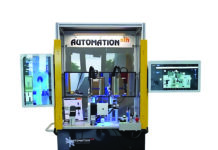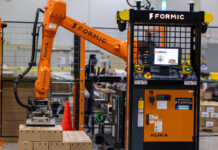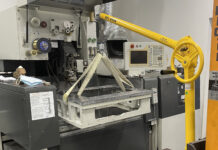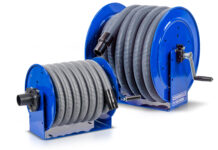
While the skills gap continues to make headlines and millennials in the workforce is an increasingly debated topic, more and more manufacturers are looking into partnerships to train future highly skilled machine tool technicians. A report from the World Economic Forum stated, “The manufacturing sector has a fundamental role to play in global economic growth and job creation,” and surveys continue to cite the lack of qualified labor as a significant hurdle to growth for many manufacturers. The challenge for the industry today seems to be removing the perceptions that make young adults reluctant to consider manufacturing as a career path. Advanced manufacturing of the 21st century is no longer the smoke stacks and assembly lines the younger generation often envisions it to be, rather state-of-the-art plants and high-tech, modern production facilities.
EMAG L.L.C. has recognized the need to proactively address this issue within its own shop. “We definitely notice the average age of our top talent increasing, and as many companies strive to retain their best employees we saw the opportunity to foster new talent in-house,” stated Peter Loetzner, CEO EMAG USA. To encourage continuing growth in Michigan’s mechatronics manufacturing industry and ensure an advanced workforce to close the sector’s skills gap, EMAG launched an apprentice training program together with the Michigan Economic Development Corporation, Oakland Community College and Henry Ford Community College. The program offers high-school graduates a career in machine Mechatronics, a discipline incorporating electrical, electronic and mechanical studies, providing all graduates an Advanced Associate’s Degree. “Not only are we training these students with the skills they need to succeed in the manufacturing world, but also offering them the platform to learn from the top-talent we already have in our shop, making sure this essential knowledge of both our machines and the industry in general is passed along organically,” added Loetzner.
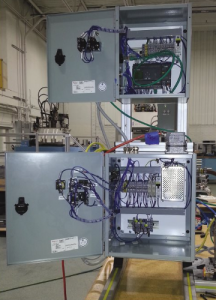 Over the course of three years the students rotate educational semesters at their colleges with practical learning on the shop floor. “This program is unique in that it is the first of its kind here in the U.S. that will develop a talent pipeline for the manufacturing industry,” stated Mike Kjorli, EMAG USA Manufacturing Manager and designated mentor to the company’s apprentices. “The participating colleges asked companies for their input to develop a real world curriculum, making it truly tailored to the needs of the industry,” Kjorli added. This approach is gaining ground in many industries as companies begin to recognize the gap between the education system and working world, where young adults continue to find it difficult to break into the workplace lacking the specific skills and experience often required to even secure an interview, much less contribute to the workplace immediately. Aiming to create a system for these students to develop and flourish, EMAG provides all tuition and student fees as well as supplies for their studies, while also paying the students an hourly wage for their contribution to the company. The combined classroom and work curriculum provides the students with both paid employment during their studies and a guaranteed position with the company upon successful graduation.
Over the course of three years the students rotate educational semesters at their colleges with practical learning on the shop floor. “This program is unique in that it is the first of its kind here in the U.S. that will develop a talent pipeline for the manufacturing industry,” stated Mike Kjorli, EMAG USA Manufacturing Manager and designated mentor to the company’s apprentices. “The participating colleges asked companies for their input to develop a real world curriculum, making it truly tailored to the needs of the industry,” Kjorli added. This approach is gaining ground in many industries as companies begin to recognize the gap between the education system and working world, where young adults continue to find it difficult to break into the workplace lacking the specific skills and experience often required to even secure an interview, much less contribute to the workplace immediately. Aiming to create a system for these students to develop and flourish, EMAG provides all tuition and student fees as well as supplies for their studies, while also paying the students an hourly wage for their contribution to the company. The combined classroom and work curriculum provides the students with both paid employment during their studies and a guaranteed position with the company upon successful graduation.
Rebekka Neumann, hired in 2013 by EMAG as an Apprentice Mechatronics Technician, stated, “This program takes a different approach. You apply everything you learn at your job then graduate with a degree, a job and no student loan debt.” Neumann sees the program as a launching pad to establish herself in the industry and was recently named to Manufacturing Engineering’s “30 under 30” list recognizing the future leaders of manufacturing. Together with Matthew Combs, who received an honorable mention on the same list, Neumann recently began her second year in the program and now also has the opportunity to mentor the next set of students, which joined the EMAG mechatronics apprenticeship program last fall and started work on the company’s shop floor in January. EMAG plans to host two new students each year, for a combined total of six students rotating throughout the duration of their three-year degree program.
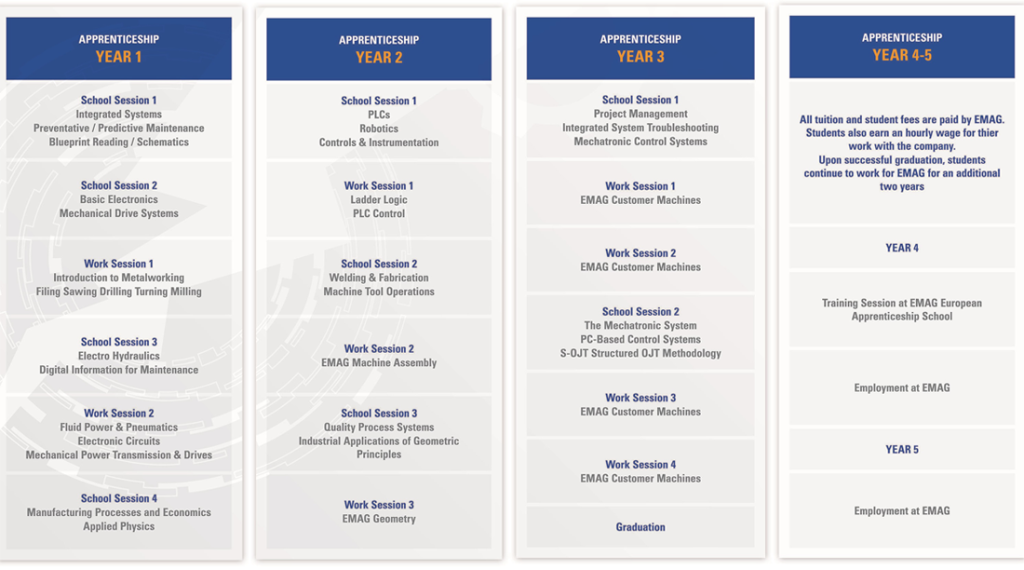
The program’s goal is to introduce more people to the mechatronics technician field, providing critical support to engineers, increasing the sector’s economic strength and ability to attract and retain desirable jobs. Specifically the program aims to attract young people to manufacturing by offering them high-tech careers that produce high-quality products and add value to our economy. “This will prepare them for many work opportunities in the mechatronics field, not only at EMAG, but in the whole industry,” stated Kjorli. The success of the program can already be seen, as students have expressed their interest in learning more and adding additional responsibilities and hours with the company beyond the program’s requirements. For their first-year project, both Rebekka and Matt successfully built a pick-up machine, incorporating pneumatics, electronic systems and a PLC which they designed themselves.
EMAG is proud to be at the forefront of this training program, cementing that technical and practical programs provide the skills needed in the industry. “I have always believed it is necessary that we help educate and train the next generation of engineering, operator and maintenance personnel. Nothing happens in industry if the machines are not working properly. We at EMAG are very proud to have launched this important program,” concluded Loetzner.
For more information visit www.emag.com

